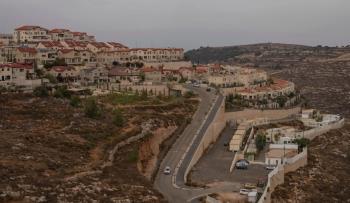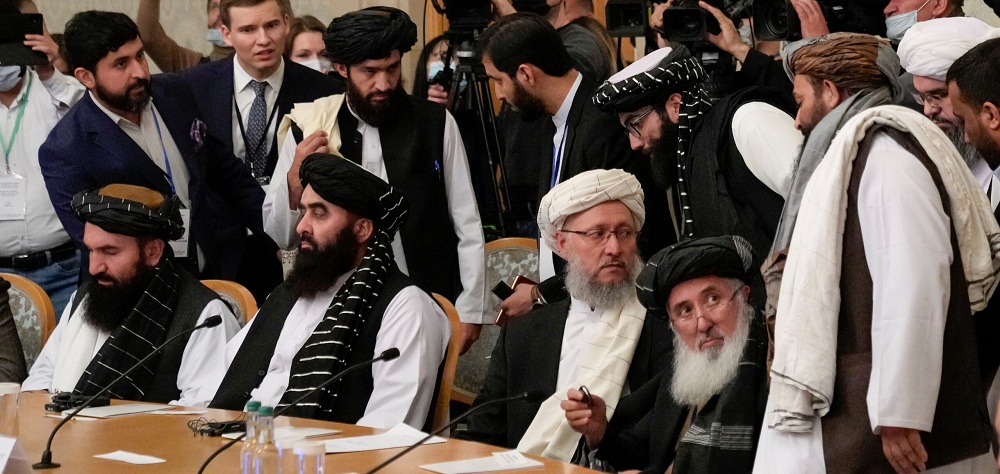Alwaght- Two years after the US exit from Afghanistan and Taliban takeover of power, the security and economic circumstances have reached catastrophic levels aggravated by fallout of 20 years of American occupation. Meanwhile, the Taliban and the Americans accuse each other of violating the 2020 Doha agreement and failure to commit to the obligations, and so far and after several rounds of negotiations, they have not worked out a solution to end their differences.
As a sequel to their talks, representatives of the two sides on Sunday and Monday once again gathered in Doha for talks. The Ministry of Foreign Affairs of the Taliban announced in a meeting with the US Special Representative for Afghanistan Thomas West, its delegation discussed building trust between the two sides, taking practical steps in this direction, removing blacklists and lifting sanctions, releasing the frozen Afghanistan reserves in the Western banks, maintaining the economic stability of this country, fighting drugs production and trafficking, and human rights issues.
According to the US Department of State's statement, in the meeting, US officials urged the Taliban to reverse policies responsible for the deteriorating human rights situation in Afghanistan, particularly for women, girls, and vulnerable communities.
“The US officials identified areas for confidence building in support of the Afghan people. The American delegation also expressed deep concern regarding the humanitarian crisis and the need to continue to support aid organizations and UN bodies delivering assistance consistent with humanitarian principles,” the statement read.
The Americans also “expressed grave concern regarding detentions, media crackdowns, and limits on religious practice. The United States expressed support for the Afghan people’s demands for their rights to be respected and for their voices to shape the future of the country,” the statement added.
The statement further said: “US officials took note of the Taliban’s continuing commitment to not allow the territory of Afghanistan to be used by anyone to threaten the United States and its allies, and the two sides discussed Taliban efforts to fulfill security commitments....The US officials pressed for the immediate and unconditional release of detained US citizens.”
Over the past two years, American officials held several meetings with the Taliban leaders, with sanctions, security, and human rights taking a center stage in the talks. In October 2021, the representatives of the two sides discussed Kabul's relations with Washington, the Doha Agreement, humanitarian aid, the release of frozen Afghan reserves, respect for Afghanistan's airspace, and other issues. Also, in October 2022, they negotiated security issues and the fight against terrorism, as well as the issue of sanctions, in Jeddah, Saudi Arabia. In addition, in May, the first international meeting was held in Qatar at the initiative of the UN, in which the representative of the Taliban was not present, and the human rights, inclusive governance, the fight against terrorism and drug trafficking, and right at especially for women and girls were brought in spotlight, but in practice not steps forward were taken.
Western countries, particularly the US, are strongly opposed to the restrictive laws imposed by the interim government of the Taliban against women and consider it a violation of human rights and have said that they will limit foreign aid to Kabul until the Taliban respects the rights of Afghans. The suspension of part of the financial packages of the UN in the past months was for this reason.
The Taliban claims that the restrictions on the women is an internal law and has nothing to do with foreigners, and that is why it has passed tough laws in this regard, defying international warnings.
Banning women from university entrance exams, closing women's beauty salons, and forcing them to wear veils in public places are among the restrictions of the Islamic Emirates on women in Afghanistan.
Sanctions, the US’s sword of Democles
In response to the Western demands, the Taliban concentrates on lifting the sanctions on Kabul to relatively assuage the dire straits Afghans are grappling with. This demand was also repeated in Doha meeting.
Under human rights excuses, the US uses sanctions as a lever of pressure against the Taliban, but this inhumane conduct has yielded disastrous conditions for Afghans. According to aid organizations, drought and economic crisis have increased poverty in Afghanistan, and currently more than 28 million people in this country need humanitarian aid.
In an meeting in Doha in May, the UN warned that the Afghanistan situation represents the world's biggest humanitarian crisis, as 97 percent of people of the country live in poverty and two-thirds of the population need humanitarian aids to survive.
The UN has warned that if the economic crisis in Afghanistan continues, more than 90 percent of the people will suffer from malnutrition, and estimated that $4 billion in financial aid are immediately needed as a temporary healing to the crisis. This is while Afghanistan has huge assets abroad, but access to them is prohibited due to their blocking by Washington.
According to statistics, more than $7 billion of Afghan assets have been blocked in the US and European banks, and the American officials do not allow the return of these foreign currency resources to Kabul. If these assets flow to Afghanistan, most of the country's economic problems will be solved, but the US does not allow Afghans to benefit from their assets majorly for political motivations and under the excuse of the absence of a comprehensive government. Despite the fact that the Afghan suffering is the result of twenty years of the US and its allies’ occupation, after their withdrawal from the Central Asian nation, the Westerners are non-responsive for their crimes and crises they caused.
Though by blocking Afghanistan assets threatening lives of millions of Afghans, the US claims to the world it seeks economic stability for Afghanistan. In its statement on recent Doha meeting, the White House said that the American officials reviewed the data that indicate fall in inflation and growth of exports and imports in Afghanistan in 2023 and announced their readiness for technical discussions on economic stability.
The Taliban demand lifting of sanctions and injection of billions of dollars as a prelude to exit of Afghanistan from its global isolation, but Washington remains unwilling to return Afghanistan's assets. Given the two-year developments, sanctions are not expected to be lifted by the US and world community in the foreseeable future. Even recently a group of 15 members of the US Congress pushed a bill that would impose more sanctions on the Taliban for human rights violations and severe restrictions on the education and employment of Afghan women. Even if this bill is not passed in a law and the sanctions are not intensified, the international community has no plans to lift the current sanctions.
From another aspect, elimination of the Taliban leaders from the US blacklist does not look likely as these people, who are by the way have key posts in the interim canine, commit rights violations and Washington wants them out of the government body, while the Taliban have taken no moves to this regard.
Though the Taliban are hopeful that negotiations with the US will at the end of the road bear fruits and find a solution helping the Islamic Emirate to settle Afghanistan challenges, prospects of an agreement are dim given the US policy to foil full Taliban seizure of power and to press it for human rights violations. The State Department’s deputy spokesman, Vedant Patel, said that Doha talks would not change the US policy, remarks indicating that the US approach to the Taliban will continue and these meetings offer no healing to Afghanistan's plight.
The Americans tie Taliban rule recognition to formation of an inclusive government containing all ethnicities and also to lifting of legal restrictions on women, and prohibiting Al-Qaeda activities on Afghanistan soil. However, since the Taliban have so far shown no will to meet international concerns, currently there are no hopes for settling Afghanistan crisis, and this gives Washington the excuse to maintain the structure of the economic sanctions.



























